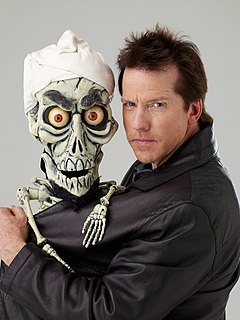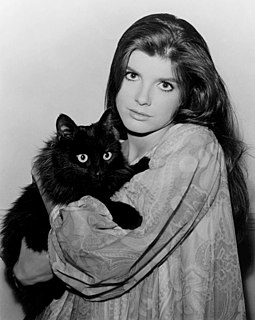A Quote by Aldous Huxley
Successfully (whatever that may mean) or unsuccessfully, we all overact the part of our favorite character in fiction.
Related Quotes
No one likes to be criticized, of course, but if the things we successfully strive for do not make our future selves happy, or if the things we unsuccessfully avoid do, then it seems reasonable (if somewhat ungracious) for them to cast a disparaging glance backward and wonder what the hell we were thinking.
I think if you were to talk to women who have run, both successfully and unsuccessfully, nearly all of them would say, "You learn so much." You learn about yourself, what you're capable of doing.... And it doesn't have to all happen when you're young - I mean, one of the most powerful women in American politics is Nancy Pelosi. She had five children. She didn't go into politics until her youngest child was in high school.... That's one of the great things about being a woman in today's world: You have a much longer potential work life than our mothers or our grandmothers did.
Personalization is everywhere. We are constantly asked, directly or indirectly, to create Our Own Whatever - containing and limited to our 'favorite sources of information.' Republicans do that; Democrats do it; environmentalists do it; terrorists do it; science fiction enthusiasts do it. That's a real problem, I think.
It is a work of psychogeography, albeit in a less explicit sense than Iain Sinclair's or Will Self's. It had to be fiction though, because I needed that freedom of including whatever belonged, and cutting out whatever didn't. The main fiction in it was matching Julius' generous and self-concealing character to New York's generous and self-concealing character. I think this also adds to my answer about New York's personality in the book.
Unexplained pain may sometimes direct our attention to something unacknowledged, something we are afraid to know or feel. Then it holds us to our integrity, claiming the attention we withhold. The thing which calls our attention may be a repressed experience or some unexpressed and important part of who we are. Whatever we have denied may stop us and dam the creative flow of our lives. Avoiding pain, we may linger in the vicinity of our wounds, sometime for many years, gathering the courage to experience them.
Whatever character you play, whatever film it is, whatever story it is, for me, in my training it's always something that gives you a layered character, it's understanding the secret of that character, and so whatever comes up as "Oh, I thought that person was that," you are always carrying that within you. So actually what you're playing all the way through is both and it's just what comes out in the scene or the circumstance.






































